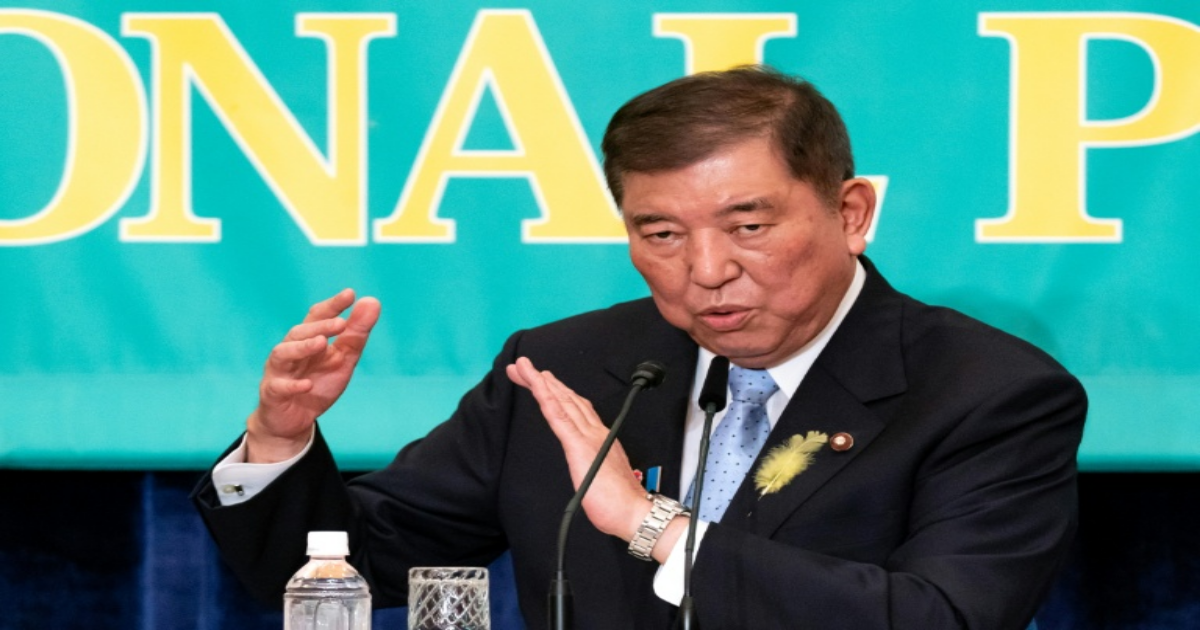Japan’s Prime Minister Shigeru Ishiba said he ‘won’t easily compromise’ in talks with the White House (Tomohiro Ohsumi)
Most stocks rose Tuesday as traders cautiously welcomed Donald Trump’s extension of his tariff deadline and indication he could push it back further, though uncertainty over US trade policy capped gains.
Days before the three-month pause on his “Liberation Day” tariffs was set to expire, the US president said he would give governments an extra three weeks to hammer out deals to avoid paying sky-high levies for exports to the world’s biggest economy.
That came as he sent out letters to over a dozen countries — including top trading partners Japan and South Korea — setting out what he had decided to charge if they did not reach agreements by the new August 1 target date.
Investors tentatively welcomed the delay amid hopes officials will be able to reach deals with Washington, with some observers seeing the latest move by the president as a negotiation tactic.
The letters said Tokyo and Seoul would be hit with 25 percent tariffs, while Indonesia, Bangladesh, Thailand, South Africa and Malaysia faced duties ranging from 25 percent to 40 percent.
When asked if the new deadline was set in stone, the president said: “I would say firm, but not 100 percent firm.”
And asked whether the letters were his final offer, he replied: “I would say final — but if they call with a different offer, and I like it, then we’ll do it.”
While Wall Street’s three main indexes ended down — with the S&P 500 and Nasdaq back from record highs — Asian markets mostly rose.
Tokyo and Seoul advanced, while there were also gains in Hong Kong, Shanghai and Singapore. Sydney, Wellington and Taipei fell. Manila and Jakarta were flat.
The White House has for weeks said that numerous deals were in the pipeline, with Treasury Secretary Scott Bessent claiming Monday that “we are going to have several announcements in the next 48 hours”.
But so far only two have been finalised, with Vietnam and Britain, while China reached a framework to slash eye-watering tit-for-tat levies.
Asia Society Policy Institute Vice President Wendy Cutler said the levies on Japan and South Korea “will send a chilling message to others”.
“Both have been close partners on economic security matters,” she said, adding that companies from both countries had made “significant manufacturing investments in the US in recent years”.
For his part, Japan’s Prime Minister Shigeru Ishiba said Sunday that he “won’t easily compromise”.
National Australia Bank’s Tapas Strickland said there remained a lot of uncertainty among investors.
“If the agreement with Vietnam is anything to go by, then countries… the US has a trade deficit with look destined to have a 20 percent tariff, and those… the US has a trade surplus with a 10 percent tariff,” he wrote in a commentary.
“That could mean eventual tariff rates settle higher than what the current consensus is, which is broadly for a 10 percent across the board tariff with a higher tariff on China.
“Without further clarity, though, markets will have trouble pricing these different scenarios, especially given Trump’s quick reversal following the market reaction in response to the initial Liberation Day tariffs.”
– Key figures at around 0230 GMT –
Tokyo – Nikkei 225: UP 0.3 percent at 39,711.29 (break)
Hong Kong – Hang Seng Index: UP 0.5 percent at 23,996.70
Shanghai – Composite: UP 0.2 percent at 3,479.65
Euro/dollar: UP at $1.1745 from $1.1710 on Monday
Pound/dollar: UP at $1.3634 from $1.3602
Dollar/yen: DOWN at 146.10 yen from 146.13 yen
Euro/pound: UP at 86.15 pence from 86.09 pence
West Texas Intermediate: DOWN 0.7 percent at $67.45 per barrel
Brent North Sea Crude: DOWN 0.6 percent at $69.16 per barrel
New York – Dow: DOWN 0.9 percent at 44,406.36 (close)
London – FTSE 100: DOWN 0.2 percent at 8,806.53 (close)
dan/tym
